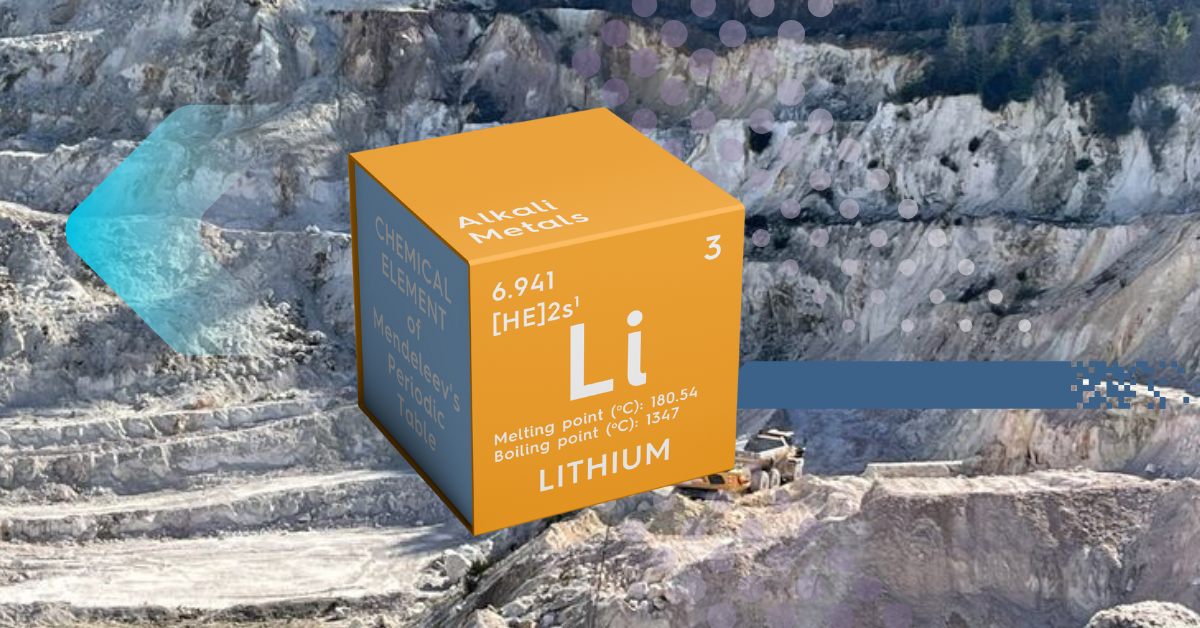The long-dormant debate surrounding the controversial Jadar underground lithium mining project in Serbia has been thrust back into the spotlight following the European Union’s decision on 4 June 2025, to include it on its keenly anticipated (and for some, dreaded) list of 13 Strategic Projects located outside the Union’s borders. This move is set to trigger a fresh wave of intense discussions across Serbia and beyond.
The Flemish newspaper De Standaard sought expert opinion on the matter, turning to Peter Tom Jones, Director of the KU Leuven Institute for Sustainable Metals and Minerals, whose insights, published in the 6th June printed edition by Pascal Sertyn, align fully with the narrative presented in the new documentary, “Europe’s Lithium Paradox.”
In “Europe’s Lithium Paradox,” the filmmakers emphasize the urgent need for a robust democratization process in Serbia, a sentiment echoing the demands of the student movement. As a potential pathway out of Serbia’s entrenched lithium dilemma, the documentary also highlights the crucial role that independent third-party auditing organizations, such as the Initiative for Responsible Mining Assurance (IRMA), could play. The integration of such bodies, Jones argues, would be instrumental in rebuilding trust and ensuring adherence to the strictest Environmental, Social, and Governance (ESG) standards. The guiding principle, in the poetic words of Subcommandante Marcos, is “To make haste slowly.”
Quotes from the De Standaard article (translated from Dutch):
“Jones is convinced that the #Jadar lithium project is a unique opportunity to extract large volumes of this critical raw material with much smaller environmental disadvantages than those of many existing lithium mines. But Europe must realize that attempts to become more self-sufficient should not lead to uncritical support for autocratic regimes in the countries where these extraction projects are to take place, he says.”
“According to Jones, the prospects for the lithium project in #Serbia are still not favorable, even though the European Commission considers it strategic to supply the EU with critical raw materials. He states that a far-reaching #democratization process is needed in Serbia before effective European support for the Jadar project can be greenlit. Collaboration with a third party, such as the Initiative for Responsible Mining Assurance, which imposes very strict ecological and social standards on #mining projects, could restore confidence, he says.”
The inclusion of Jadar on the EU’s strategic list has been met with mixed reactions. While proponents, including Rio Tinto and some Serbian officials, claim it signals adherence to the highest environmental standards and promises significant job creation, opponents view it as a disregard for public opposition and a troubling sign of “colonialist relations” where Serbia is expected to sacrifice its environment for Europe’s industrial needs. The project has faced years of fierce resistance from environmental groups and local communities concerned about potential impacts on water sources, fertile land, and overall environmental degradation. The Serbian government had previously revoked the project’s licenses in 2022 following mass protests, though a local court later reinstated Rio Tinto’s permit.
The Jadar project is now the sole lithium and boron project among the 13 newly designated strategic projects outside the EU, which also include sites in Canada, Greenland, Kazakhstan, Norway, Ukraine, Zambia, New Caledonia, Brazil, Madagascar, Malawi, South Africa, and the United Kingdom.
Can Stakeholders Bridge the Divide in this War of Attrition?
The question remains whether the diverse stakeholders involved in the Jadar project – including the Serbian government, local communities, environmental activists, Rio Tinto, and now the European Union – can break the current stalemate and move beyond the “lithium trenches” of this ongoing war of attrition. The calls for a genuine democratization process in Serbia, coupled with the implementation of robust, independently verified ESG standards through organizations like IRMA, suggest a potential path forward.
For those eager to delve deeper into the complexities of the #Jadar project in #Serbia and other #lithium EU Strategic Projects in Portugal, France, Finland, and beyond, “Europe’s Lithium Paradox” and its companion documentary “Not In My Country: Serbia’s Lithium Dilemma” offer comprehensive insights into this highly contested mining and refining project.

